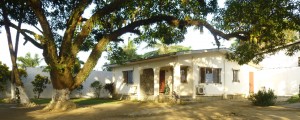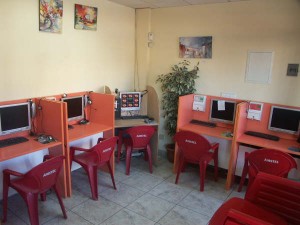In 2010, I traveled to Liberia to participate in the funeral services of my uncle. While there, I was reacquainted with a cousin; one I hadn’t seen since we were both kids, some twenty-five years earlier. Back then he was a small child, and I remember him being a quiet and reserved sort, someone with whom I barely played – certainly not as much as I did with my other cousins, whose father we had gathered to remember and give a final send-off.
I barely recognized my cousin when I saw him. Aside from the fact that he bore a resemblance to another uncle who had passed away more than a decade earlier, he was now a fully grown adult, years away from the small, quite child I once knew. He walked up to me while I lay in a hammock at our family residence on GSA Road in Paynesville, a suburb of capital Monrovia, Liberia. He introduced himself as my cousin James, and we started to converse about life. I asked how he’d been and what he’d been doing since we last saw each other years earlier. He shared that he was into computers and was growing fascinated with them. He added that he wanted to become a network engineer – like me.
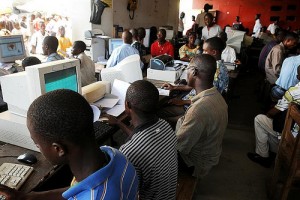
I must admit that at the time, I thought the idea farfetched at best and laughable at worst. Considering his dreams from the perspective of a person living in an advanced country, I thought of the impediments he’d face in pursuit of it in a country like Liberia; a country where access to electricity was sporadic, where formal network training was nonexistent, and where any sort of growing professional market sector that could readily support hardware of the type that would be necessary for network engineering to flourish was years away. Nevertheless, I supported his dreams and offered to assist in any way that I could, for doing otherwise would have been cruel.
Soon after our conversation, I returned to the U.S. In 2011, I visited Liberia again – this time to attend the medical school graduation of my best friend, Dr. Phillip Ireland. I didn’t get to see my cousin, but I stayed in touch, communicating as frequently as I could and thinking of ways to include him in plans I had nurtured for quite some time regarding the establishment of a computer school, internet café, and store or a resource center; in essence a place where those wanting to get into the computer field could go and immerse themselves for a few hours at a time. The goal would be to support computer literacy and provide technology access, internet services and web-based programs at little or no cost. I called it EDAFRICOM – a working acronym derived from Educating Africa via Computer Technology.
 Then one day at work, there were a surplus of laptops that were just lying around and collecting dust. These old, unused computers and laptops needed to be disposed of properly but were still in some form readily useable. All that was needed was a replacement keyboard here, a new battery or power supply there, maybe even a repaired LCD screen… in other words, just a little TLC in one form of another. So I quickly asked my manager if I could have them, and once I got the green light I took them home, much to the chagrin of my wife. I went on EBay and purchased a bunch of replacement parts for all of those laptops and got them all working in decent fashion in short order. Pretty pleased with myself I then wondered what I would do with all this now refurbished hardware. Would it be best to sell them? If so, where? EBay? I soon realized the futility of such an effort as EBay was far too competitive and I couldn’t handle the regular monitoring of bids and all that selling on EBay would entail.
Then one day at work, there were a surplus of laptops that were just lying around and collecting dust. These old, unused computers and laptops needed to be disposed of properly but were still in some form readily useable. All that was needed was a replacement keyboard here, a new battery or power supply there, maybe even a repaired LCD screen… in other words, just a little TLC in one form of another. So I quickly asked my manager if I could have them, and once I got the green light I took them home, much to the chagrin of my wife. I went on EBay and purchased a bunch of replacement parts for all of those laptops and got them all working in decent fashion in short order. Pretty pleased with myself I then wondered what I would do with all this now refurbished hardware. Would it be best to sell them? If so, where? EBay? I soon realized the futility of such an effort as EBay was far too competitive and I couldn’t handle the regular monitoring of bids and all that selling on EBay would entail.
As I pondered what I’d do with the equipment, I started to think of the dreams I’d been nurturing regarding a Computer Center and Internet Café in Liberia. I thought “If I could just find someone I could trust in Liberia to handle the laptops, my fears and concerns regarding loss and theft could be alleviated.” I then thought of my cousin James. I quickly contacted him and made arrangements to ship the laptops to Monrovia.
After a torturous and expensive shipping experience, we finally got most of the laptops to Monrovia and over the course of the next several months were able to sell some, use others for teaching purposes and some to repair and replace broken parts. Of course, there was the inevitable loss and theft of some others as well. James and I discussed and implemented a number of plans, designs and schemes regarding “next steps” for the excess laptops I would refurbish and send to Liberia, and eventually, all this effort led to the initiative that would later become The Leap Forward Project (TLFP).
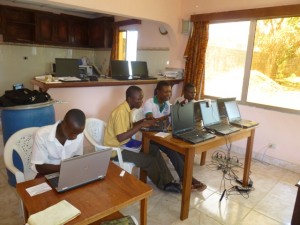 In 2013, James and I established a computer tutoring service for working professionals seeking hands on training and experience with popular office suites such as Microsoft Office, Mavis Beacon Teaches Typing and the like. The initial response was tepid at best – primarily for locational and logistical reasons. While somewhat promising owing to the large number of local professionals who needed such training, the cost of providing the training outweighed the revenue we were generating. We were therefore operating at a loss for a mid-sized or large business concern as most Liberians could not afford more than a few dollars for our service as it was designed. We scaled down and decided that James, who would have been otherwise unemployed, would continue to provide the service and use the proceeds to sustain himself and his family, while we designed a more cost-efficient delivery model worthy of a mid-sized entrepreneurial effort. I supported James' efforts by sending him the training materials most requested for at the time and he continued the classes for a while to meet the sporadic demand.
In 2013, James and I established a computer tutoring service for working professionals seeking hands on training and experience with popular office suites such as Microsoft Office, Mavis Beacon Teaches Typing and the like. The initial response was tepid at best – primarily for locational and logistical reasons. While somewhat promising owing to the large number of local professionals who needed such training, the cost of providing the training outweighed the revenue we were generating. We were therefore operating at a loss for a mid-sized or large business concern as most Liberians could not afford more than a few dollars for our service as it was designed. We scaled down and decided that James, who would have been otherwise unemployed, would continue to provide the service and use the proceeds to sustain himself and his family, while we designed a more cost-efficient delivery model worthy of a mid-sized entrepreneurial effort. I supported James' efforts by sending him the training materials most requested for at the time and he continued the classes for a while to meet the sporadic demand.
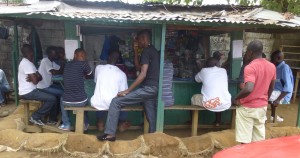 The next grand idea in the evolution of what would become The Leap Forward Program came from James’ frequent visits to the neighborhood Hatai shop, the local version of a coffee shop in Liberia. He had prior experience as a K thru 12 school teacher, but had grown disillusioned with the limitations of the current model in Liberia, for a couple of reasons: the preclusion of full scale information technology training and the low wages paid to teachers in general, but many of his friends who visited the shop had spoken to him about the need for computers and computer education in their schools and would gladly work with anyone if they could provide a reliable service in this regard. James then thought to himself, “Why not engage with (his) network of principals and school proprietors and come to terms on an agreement to expose K thru 12 students to an introductory curriculum centered on computers and computer-based training”? We discussed his idea at length, refined it and decided on the proper approach. By 2014, we were engaged in serious discussions with our first school, Christ The King Foundation School (CTKFS). Soon afterwards we finalized an agreement with “CTKFS”, and formal implementation of the Leap Forward model began at the school in the first quarter of 2015.
The next grand idea in the evolution of what would become The Leap Forward Program came from James’ frequent visits to the neighborhood Hatai shop, the local version of a coffee shop in Liberia. He had prior experience as a K thru 12 school teacher, but had grown disillusioned with the limitations of the current model in Liberia, for a couple of reasons: the preclusion of full scale information technology training and the low wages paid to teachers in general, but many of his friends who visited the shop had spoken to him about the need for computers and computer education in their schools and would gladly work with anyone if they could provide a reliable service in this regard. James then thought to himself, “Why not engage with (his) network of principals and school proprietors and come to terms on an agreement to expose K thru 12 students to an introductory curriculum centered on computers and computer-based training”? We discussed his idea at length, refined it and decided on the proper approach. By 2014, we were engaged in serious discussions with our first school, Christ The King Foundation School (CTKFS). Soon afterwards we finalized an agreement with “CTKFS”, and formal implementation of the Leap Forward model began at the school in the first quarter of 2015.
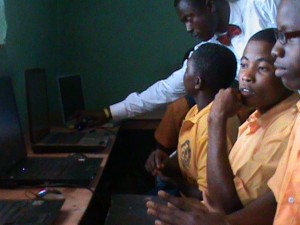 The model proved extremely successful! Administrators marveled at the transformative powers of such a seemingly simple idea, parents spoke with pride about their computer-literate kids, and the students were overjoyed about their newly acquired and growing skills and knowledge. It was then that we realized that were truly on to something. We began to focus on what was a grossly underserved market for computer educational services to the K thru 12 schools across the country.
The model proved extremely successful! Administrators marveled at the transformative powers of such a seemingly simple idea, parents spoke with pride about their computer-literate kids, and the students were overjoyed about their newly acquired and growing skills and knowledge. It was then that we realized that were truly on to something. We began to focus on what was a grossly underserved market for computer educational services to the K thru 12 schools across the country.
We looked to address the problem of a lack of qualified instructors, resolving this by creating a teachers’ training program at TLFP, the sole focus of which would be to prepare and equip teachers with the skills, training and continuing education required to handle the needs of a diverse student body as the TLFP model is deployed throughout Liberia.
Currently, there are a few government-supported, teachers’ training institutes in Liberia, but these institutions are poorly equipped, and semi-functional at best, with very little along the lines of computer education and computer-based training. The entire sector could use a massive infusion of funds as well as updated, twenty-first century, 1st world-caliber curriculums. Such efforts are currently beyond the government’s immediate (and foreseeable) paradigm however.
As a part of our efforts, we will recruit and train teachers to implement the TLFP model; a model geared toward introducing and sustaining computer education and computer-based training to K thru 12 students, with the goal of eventually expanding into a full-fledged Science, Technology, Engineering and Mathematics (STEM) curriculum so as to prepare students to compete with their peers in advanced countries.
We are convinced that we will have a positive and lasting impact on the students and schools that implement our model, and we look forward to expanding access to computer education and computer-based training in Liberia.
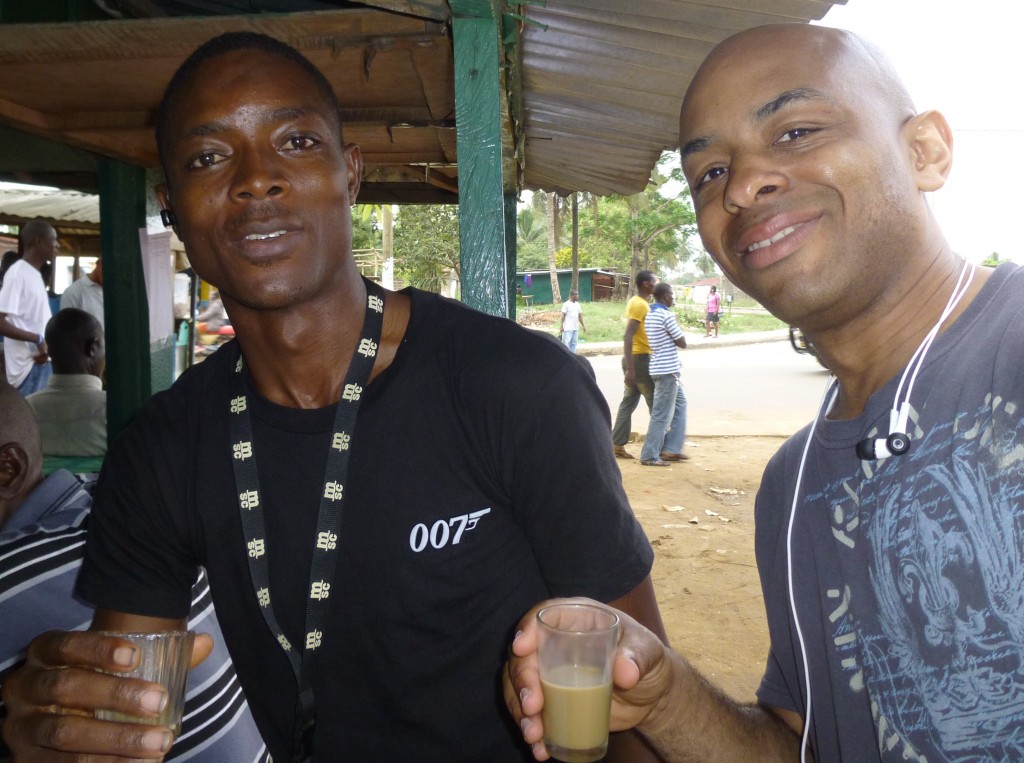
James and I enjoying a shot of espresso at the local Hatai shop on Duport Road. Fun times and lively discussions...

